#epistemological chaos
Text
Greenwashing set Canada on fire

On September 22, I'm (virtually) presenting at the DIG Festival in Modena, Italy. On September 27, I'll be at Chevalier's Books in Los Angeles with Brian Merchant for a joint launch for my new book The Internet Con and his new book, Blood in the Machine.

As a teenager growing up in Ontario, I always envied the kids who spent their summers tree planting; they'd come back from the bush in September, insect-chewed and leathery, with new muscle, incredible stories, thousands of dollars, and a glow imparted by the knowledge that they'd made a new forest with their own blistered hands.
I was too unathletic to follow them into the bush, but I spent my summers doing my bit, ringing doorbells for Greenpeace to get my neighbours fired up about the Canadian pulp-and-paper industry, which wasn't merely clear-cutting our old-growth forests – it was also poisoning the Great Lakes system with PCBs, threatening us all.
At the time, I thought of tree-planting as a small victory – sure, our homegrown, rapacious, extractive industry was able to pollute with impunity, but at least the government had reined them in on forests, forcing them to pay my pals to spend their summers replacing the forests they'd fed into their mills.
I was wrong. Last summer's Canadian wildfires blanketed the whole east coast and midwest in choking smoke as millions of trees burned and millions of tons of CO2 were sent into the atmosphere. Those wildfires weren't just an effect of the climate emergency: they were made far worse by all those trees planted by my pals in the eighties and nineties.
Writing in the New York Times, novelist Claire Cameron describes her own teen years working in the bush, planting row after row of black spruces, precisely spaced at six-foot intervals:
https://www.nytimes.com/2023/09/15/opinion/wildfires-treeplanting-timebomb.html
Cameron's summer job was funded by the logging industry, whose self-pegulated, self-assigned "penalty" for clearcutting diverse forests of spruce, pine and aspen was to pay teenagers to create a tree farm, at nine cents per sapling (minus camp costs).
Black spruces are made to burn, filled with flammable sap and equipped with resin-filled cones that rely on fire, only opening and dropping seeds when they're heated. They're so flammable that firefighters call them "gas on a stick."
Cameron and her friends planted under brutal conditions: working long hours in blowlamp heat and dripping wet bulb humidity, amidst clouds of stinging insects, fingers blistered and muscles aching. But when they hit rock bottom and were ready to quit, they'd encourage one another with a rallying cry: "Let's go make a forest!"
Planting neat rows of black spruces was great for the logging industry: the even spacing guaranteed that when the trees matured, they could be easily reaped, with ample space between each near-identical tree for massive shears to operate. But that same monocropped, evenly spaced "forest" was also optimized to burn.
It burned.
The climate emergency's frequent droughts turn black spruces into "something closer to a blowtorch." The "pines in lines" approach to reforesting was an act of sabotage, not remediation. Black spruces are thirsty, and they absorb the water that moss needs to thrive, producing "kindling in the place of fire retardant."
Cameron's column concludes with this heartbreaking line: "Now when I think of that summer, I don’t think that I was planting trees at all. I was planting thousands of blowtorches a day."
The logging industry committed a triple crime. First, they stole our old-growth forests. Next, they (literally) planted a time-bomb across Ontario's north. Finally, they stole the idealism of people who genuinely cared about the environment. They taught a generation that resistance is futile, that anything you do to make a better future is a scam, and you're a sucker for falling for it. They planted nihilism with every tree.
That scam never ended. Today, we're sold carbon offsets, a modern Papal indulgence. We are told that if we pay the finance sector, they can absolve us for our climate sins. Carbon offsets are a scam, a market for lemons. The "offset" you buy might be a generated by a fake charity like the Nature Conservancy, who use well-intentioned donations to buy up wildlife reserves that can't be logged, which are then converted into carbon credits by promising not to log them:
https://pluralistic.net/2020/12/12/fairy-use-tale/#greenwashing
The credit-card company that promises to plant trees every time you use your card? They combine false promises, deceptive advertising, and legal threats against critics to convince you that you're saving the planet by shopping:
https://pluralistic.net/2021/11/17/do-well-do-good-do-nothing/#greenwashing
The carbon offset world is full of scams. The carbon offset that made the thing you bought into a "net zero" product? It might be a forest that already burned:
https://pluralistic.net/2022/03/11/a-market-for-flaming-lemons/#money-for-nothing
The only reason we have carbon offsets is that market cultists have spent forty years convincing us that actual regulation is impossible. In the neoliberal learned helplessness mind-palace, there's no way to simply say, "You may not log old-growth forests." Rather, we have to say, "We will 'align your incentives' by making you replace those forests."
The Climate Ad Project's "Murder Offsets" video deftly punctures this bubble. In it, a detective points his finger at the man who committed the locked-room murder in the isolated mansion. The murderer cheerfully admits that he did it, but produces a "murder offset," which allowed him to pay someone else not to commit a murder, using market-based price-discovery mechanisms to put a dollar-figure on the true worth of a murder, which he duly paid, making his kill absolutely fine:
https://pluralistic.net/2021/04/14/for-sale-green-indulgences/#killer-analogy
What's the alternative to murder offsets/carbon credits? We could ask our expert regulators to decide which carbon intensive activities are necessary and which ones aren't, and ban the unnecessary ones. We could ask those regulators to devise remediation programs that actually work. After all, there are plenty of forests that have already been clearcut, plenty that have burned. It would be nice to know how we can plant new forests there that aren't "thousands of blowtorches."
If that sounds implausible to you, then you've gotten trapped in the neoliberal mind-palace.
The term "regulatory capture" was popularized by far-right Chicago School economists who were promoting "public choice theory." In their telling, regulatory capture is inevitable, because companies will spend whatever it takes to get the government to pass laws making what they do legal, and making competing with them into a crime:
https://pluralistic.net/2022/06/13/public-choice/#ajit-pai-still-terrible
This is true, as far as it goes. Capitalists hate capitalism, and if an "entrepreneur" can make it illegal to compete with him, he will. But while this is a reasonable starting-point, the place that Public Choice Theory weirdos get to next is bonkers. They say that since corporations will always seek to capture their regulators, we should abolish regulators.
They say that it's impossible for good regulations to exist, and therefore the only regulation that is even possible is to let businesses do whatever they want and wait for the invisible hand to sweep away the bad companies. Rather than creating hand-washing rules for restaurant kitchens, we should let restaurateurs decide whether it's economically rational to make us shit ourselves to death. The ones that choose poorly will get bad online reviews and people will "vote with their dollars" for the good restaurants.
And if the online review site decides to sell "reputation management" to restaurants that get bad reviews? Well, soon the public will learn that the review site can't be trusted and they'll take their business elsewhere. No regulation needed! Unleash the innovators! Set the job-creators free!
This is the Ur-nihilism from which all the other nihilism springs. It contends that the regulations we have – the ones that keep our buildings from falling down on our heads, that keep our groceries from poisoning us, that keep our cars from exploding on impact – are either illusory, or perhaps the forgotten art of a lost civilization. Making good regulations is like embalming Pharaohs, something the ancients practiced in mist-shrouded, unrecoverable antiquity – and that may not have happened at all.
Regulation is corruptible, but it need not be corrupt. Regulation, like science, is a process of neutrally adjudicated, adversarial peer-review. In a robust regulatory process, multiple parties respond to a fact-intensive question – "what alloys and other properties make a reinforced steel joist structurally sound?" – with a mix of robust evidence and self-serving bullshit and then proceed to sort the two by pantsing each other, pointing out one another's lies.
The regulator, an independent expert with no conflicts of interest, sorts through the claims and counterclaims and makes a rule, showing their workings and leaving the door open to revisiting the rule based on new evidence or challenges to the evidence presented.
But when an industry becomes concentrated, it becomes unregulatable. 100 small and medium-sized companies will squabble. They'll struggle to come up with a common lie. There will always be defectors in their midst. Their conduct will be legible to external experts, who will be able to spot the self-serving BS.
But let that industry dwindle to a handful of giant companies, let them shrink to a number that will fit around a boardroom table, and they will sit down at a table and agree on a cozy arrangement that fucks us all over to their benefit. They will become so inbred that the only people who understand how they work will be their own insiders, and so top regulators will be drawn from their own number and be hopelessly conflicted.
When the corporate sector takes over, regulatory capture is inevitable. But corporate takeover isn't inevitable. We can – and have, and will again – fight corporate power, with antitrust law, with unions, and with consumer rights groups. Knowing things is possible. It simply requires that we keep the entities that profit by our confusion poor and thus weak.
The thing is, corporations don't always lie about regulations. Take the fight over working encryption, which – once again – the UK government is trying to ban:
https://www.theguardian.com/technology/2023/feb/24/signal-app-warns-it-will-quit-uk-if-law-weakens-end-to-end-encryption
Advocates for criminalising working encryption insist that the claims that this is impossible are the same kind of self-serving nonsense as claims that banning clearcutting of old-growth forests is impossible:
https://twitter.com/JimBethell/status/1699339739042599276
They say that when technologists say, "We can't make an encryption system that keeps bad guys out but lets good guys in," that they are being lazy and unimaginative. "I have faith in you geeks," they said. "Go nerd harder! You'll figure it out."
Google and Apple and Meta say that selectively breakable encryption is impossible. But they also claim that a bunch of eminently possible things are impossible. Apple claims that it's impossible to have a secure device where you get to decide which software you want to use and where publishers aren't deprive of 30 cents on every dollar you spend. Google says it's impossible to search the web without being comprehensively, nonconsensually spied upon from asshole to appetite. Meta insists that it's impossible to have digital social relationship without having your friendships surveilled and commodified.
While they're not lying about encryption, they are lying about these other things, and sorting out the lies from the truth is the job of regulators, but that job is nearly impossible thanks to the fact that everyone who runs a large online service tells the same lies – and the regulators themselves are alumni of the industry's upper eschelons.
Logging companies know a lot about forests. When we ask, "What is the best way to remediate our forests," the companies may well have useful things to say. But those useful things will be mixed with actively harmful lies. The carefully cultivated incompetence of our regulators means that they can't tell the difference.
Conspiratorialism is characterized as a problem of what people believe, but the true roots of conspiracy belief isn't what we believe, it's how we decide what to believe. It's not beliefs, it's epistemology.
Because most of us aren't qualified to sort good reforesting programs from bad ones. And even if we are, we're probably not also well-versed enough in cryptography to sort credible claims about encryption from wishful thinking. And even if we're capable of making that determination, we're not experts in food hygiene or structural engineering.
Daily life in the 21st century means resolving a thousand life-or-death technical questions every day. Our regulators – corrupted by literally out-of-control corporations – are no longer reliable sources of ground truth on these questions. The resulting epistemological chaos is a cancer that gnaws away at our resolve to do anything about it. It is a festering pool where nihilism outbreaks are incubated.
The liberal response to conspiratorialism is mockery. In her new book Doppelganger, Naomi Klein tells of how right-wing surveillance fearmongering about QR-code "vaccine passports" was dismissed with a glib, "Wait until they hear about cellphones!"
https://pluralistic.net/2023/09/05/not-that-naomi/#if-the-naomi-be-klein-youre-doing-just-fine
But as Klein points out, it's not good that our cellphones invade our privacy in the way that right-wing conspiracists thought that vaccine passports might. The nihilism of liberalism – which insists that things can't be changed except through market "solutions" – leads us to despair.
By contrast, leftism – a muscular belief in democratic, publicly run planning and action – offers a tonic to nihilism. We don't have to let logging companies decide whether a forest can be cut, or what should be planted when it is. We can have nice things. The art of finding out what's true or prudent didn't die with the Reagan Revolution (or the discount Canadian version, the Mulroney Malaise). The truth is knowable. Doing stuff is possible. Things don't have to be on fire.

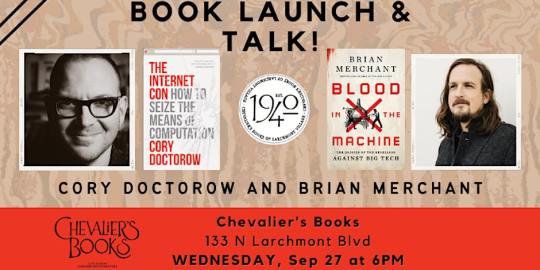

If you'd like an essay-formatted version of this post to read or share, here's a link to it on pluralistic.net, my surveillance-free, ad-free, tracker-free blog:
https://pluralistic.net/2023/09/16/murder-offsets/#pulped-and-papered
#pluralistic#logging#pulp and paper#ontario#greenwashing#a market for lemons#incentives matter#capitalism#late-stage capitalism#climate emergency#wildfires#canada#canpoli#ontpoli#carbon offsets#self-regulation#nerd harder#epistemological chaos#regulatory capture#Claire Cameron#pines in lines
3K notes
·
View notes
Text
youtube
Review: "The Postmodern Condition: A Report on Knowledge" by Jean-Francois Lyotard -
While Lyotard's work is now a bit less controversial, he anticipates the coming limits of knowledge imposed upon us by the very technologies we use to augment it. This brief, heavy reading remains a powerful premise for thinking about how we produce knowledge in science and in schools.
#bookworm#literature#book reviews#read read read#books#jean francois lyotard#the postmodern condition#criticism#literary criticism#philosophy#epistemology#postmodernism#poststructuralism#science#chaos theory#metaphysics#education#Youtube
1 note
·
View note
Text
As a type of discourse, science continues to dream of, indeed to strive toward, being a language that corresponds to reality—a language, in other words, that is somehow able to keep itself pure and free of the chaos, derangement, and ambiguity in which other forms of knowledge production increasingly find themselves. While also confronted with modernity’s language crisis, scientific discourse takes the form, or so according to Foucault’s description, of a mode of enunciation or signification whose most fundamental attribute is its aspiration to speak and write without words, without the metaphoric clutter, noise, and messiness of linguistic mediation. Scientific discourse rigorously adopts the ideal and practice of objectivity that, as Lorraine Daston and Peter Galison argue, arose in the mid–nineteenth century as a radical epistemological therapy against the fear of subjective errors, against the threat of subjectivity as errancy. “Objectivity is to epistemology what extreme asceticism is to morality,” they write.
Rey Chow, A Face Drawn in Sand: Humanistic Inquiry and Foucault in the Present [emphasis added]
#mine#rey chow#thinking about the linkeages between scienticism + 'nutrition science' the material aesceticism of diet culture emerging from it#+ the epistemological aesceticism of commitments to objective science#ANYWAYZE#readings#epistemology#science and technology studies
36 notes
·
View notes
Text
Balancing Thought:
A critical analysis of the modern advent of Nietzschean epistemology.
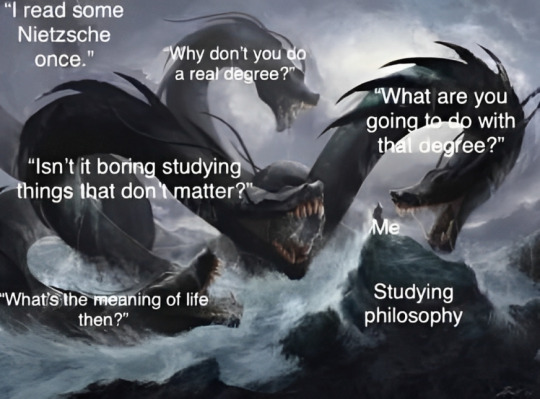
The era of the internet has given birth to several new beliefs, ideologies and claims. But what it has best done is reinforce certain movements and revolutions so dangerous and unsettling, they must be severely dealt with. The dawn of Instagram and internet forums like 4chan have heralded a revolution against the thought of modern civilization.
Cinema, an ever-evolving medium of art and expression, often draws inspiration from diverse philosophical underpinnings. The captivating lunacy of Nietzschean philosophy has weaved its way into popular films, offering intricate explorations of human nature. We have come across a strange romanticization of characters of psychopaths, emotionless murderers, unspoken and mindless megalomaniacs. This horrific perception of world bending idealism and its consequences have been disastrous to our society. From the edgy allure of Fight Club to the dingy depths of American Psycho and Nightcrawler, movies often draw from a variety of sources to craft their narratives. One of the most notable influences in recent years has been Friedrich Nietzsche's philosophy, which has found a home in these thought-provoking films. However, it's essential to scrutinize the potential impact of Nietzschean ideas on the impressionable minds of the youth.
We can see Nietzsche’s flow of thoughts make an influence on all eccentric artists alike. The influence of Fyodor Dostoevsky's Crime and Punishment on these movies is undeniable. Dostoevsky's exploration of guilt, morality, and the human psyche is a cornerstone in the foundation of Nietzschean-inspired narratives. Raskolnikov's moral dilemma mirrors the internal struggles depicted in the movies, further cementing the link between Dostoevsky's work and modern cinematic interpretations. For example, Patrick Bateman is literally Raskolnikov but as a corporate employee at a big firm; the Protagonist from Fight Club represents Raskolnikov’s doom centric worldview, a collapsitarian ignorance and the immutable belief in Nietzschean “Will to power” which rejects Godly morality and insinuates upon resolving to barbarism, which both eventually do in their own stories.
Nietzsche’s claim of the fading belief in the transcendent and a call for individual action, while remaining true, also gets horribly misconstrued. In fact, going as far as saying that Nietzsche’s sole resolve was an ad hominem and confirmation bias against classical Christian theology wouldn’t be wrong. He simply discards the objective morality (Of not good and bad but of order and chaos.) in a vapid and hollow pursuit of the self. It's crucial to offer a counterbalance that promotes inner peace and empathy.
Oriental and Eastern philosophies, such as Buddhism and Taoism, have long emphasized the importance of interconnectedness, mindfulness, and harmony. The rise of Christianity did bring about significant cultural and social transformations, including the spread of knowledge and values that contributed to peace and civilization. Nietzsche's dissenting voice does not negate these achievements but rather seeks to enrich them with new perspectives. Yet, amidst the shadows cast by Nietzschean thought, there exists a realm of Eastern wisdom waiting to be explored.
Vaishnavism, a branch of Hindu philosophy, promotes devotion, love, and compassion towards all living beings. Its emphasis on interconnectedness and unity offers a poignant counterbalance to the individualistic themes present in Nietzschean-inspired cinema. Similarly, Advaita, rooted in the Upanishads, delves into the concept of non-duality, challenging us to see beyond the illusion of separateness and embrace a more holistic perspective. The concept of God, a cornerstone of human belief systems, has undergone a transformation over time. As societies progress and cultures evolve, the traditional image of a higher deity gives way to more nuanced and diverse interpretations. This transcendence is not an endorsement of degeneration, as some critics argue, but a testament to the growth of human thought, fostering critical thinking and an expanded capacity for empathy.
As we traverse the intricate labyrinth of cinematic narratives and philosophical ideologies, we are reminded of the profound impact they wield on our perceptions and beliefs. Nietzschean philosophy, with its mesmerizing appeal, offers us a glimpse into the darker recesses of human nature, prompting contemplation and reflection. Yet, as we explore these depths, we must not forget the wisdom that emanates from Vaishnavism and Advaita, inviting us to embrace interconnectedness, compassion, and non-duality.
At the core of the Bhakti movement lies a profound devotion to the divine. Through selfless love and unwavering faith, adherents seek to dissolve the ego and merge with the transcendent. This devotion extends beyond the self, fostering a sense of unity with all living beings. In a world characterized by division, the Bhakti movement's emphasis on interconnectedness provides a powerful antidote to Nietzsche's individualism. The altruistic Advaita philosophy challenges the divisive notions propagated by Nietzschean thought, reminding us of the inherent interconnectedness of existence. By transcending the illusion of separateness, Advaita offers a holistic perspective that resonates with the Bhakti movement's call for devotion and unity.
Ironically enough, today's groups on the internet claim to bring order using Nietzsche’s flawed perspectives of the world which have been depicted to bring disharmony countless times. In a world marked by differing philosophical perspectives, the stories of characters like Po from Kungfu Panda, Rango, Musashi from Vagabond, Thorfin from Vinland saga, and Forrest Gump illuminate the path of Eastern idealism—a path that champions compassion, humility, and selflessness. As we navigate the complex tapestry of human experiences, these characters serve as beacons of hope, reminding us that goodness and harmony are attainable through diverse narratives. And lastly, they remind us that true power comes not from arrogant dominance and indomitable spirit, but by empathetic cooperation. The world can be conquered best by simply serving it.
- Gagan Deepankar V
10 notes
·
View notes
Text




Nanako set up a tanabata ornament in the house and it's just super sad!!!!!!
While tending to the garden with Dojima and Nanako, Dojima mentions he doesn't know what to wish for. I tried checking every night but i never saw his wish and don't know if he settled on one. Goddammit Dojima.
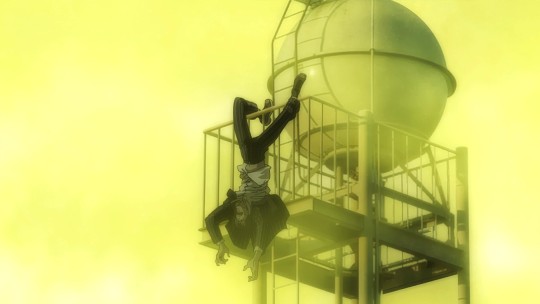
AND THEN MOROOKA DIES? THE MEAN ASSHOLE TEACHER? WHO HAD A WEIRD THING FOR RISE BUT CALLED EVERYONE A SLUT?
/points. Copycat. That's a copycat.
Everyone is confused and decided we should totally ask Teddie if he sensed anyone in the TV last night.


EXCEPT TURNS OUT TEDDIE IS JUST HANGING AROUND JUNES. which, yanno. amazing cover, tbh. of course you'd see him around a place like this, he's a mascot!

I feel such kinship with Teddie. Also, what the fuck is Junes an equivalent to? I thought it was a Costco or Target but like they have MASSAGE CHAIRS? What is this place?!
Per Teddie, Morooka did not get thrown into the TV at all. I am still calling copycat on this.


KANJI IS CONTINUALLY DENIED. LET HIM TOUCH THE FUR.


is that how that works, bud
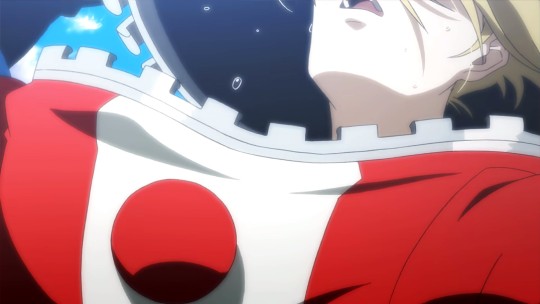

....
i can't even handle the epistemological implications of this.
how do sit-ups give you a HUMAN BODY?
what the FUCK is Teddie??????

besides a blond haired blue eyed anime boy?????? I guess??????
/looks helplessly around
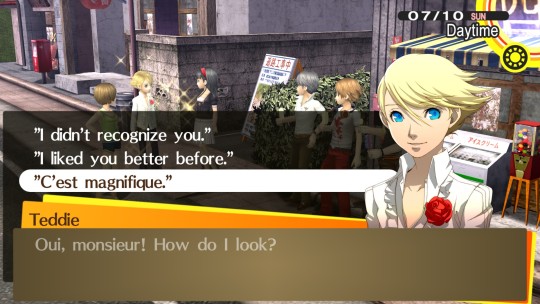

I'm sorry Chie but I will be encouraging Teddie at every turn. I love chaos too much.




I'm so glad we aren't in the fucking horrible springtime anymore, I am having MUCH more fun now. I like everyone again. 8) (tho especially kanji, natch)
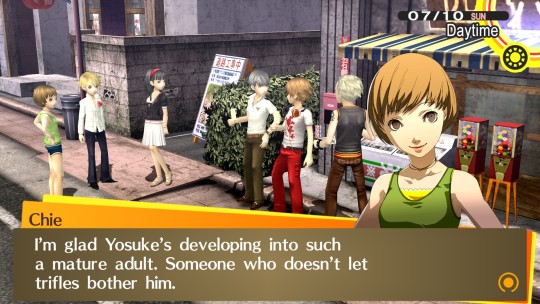



lmao chie if not for the shit yosuke pulled on you and yukiko at camp, i would be saying what the absolute hell you've crossed a line
buuuuuuuuut the turns have sure tabled. good for you, girl.
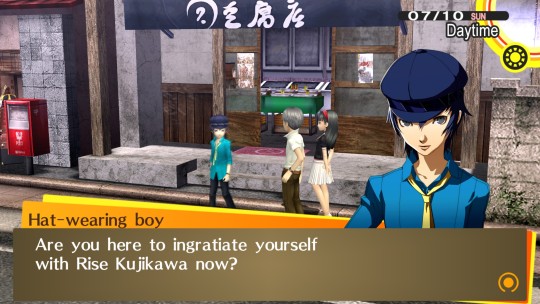
uuuuh rise is our friend, that's how it works when you save someone's life, that's like instant friendship. what kind of detective are you if you don't know that????
Naoto is poking around. He also doesn't think that Morooka fits the pattern. I'm saying! Copycat!
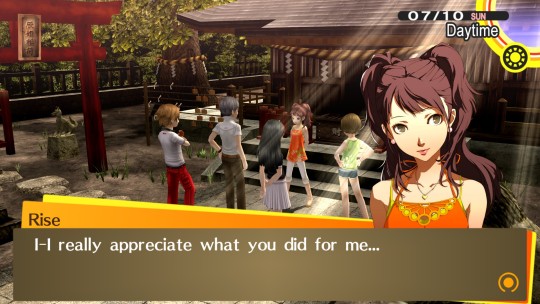

oh my god the pitch her voice jumped to made me move my headphones, lmao.
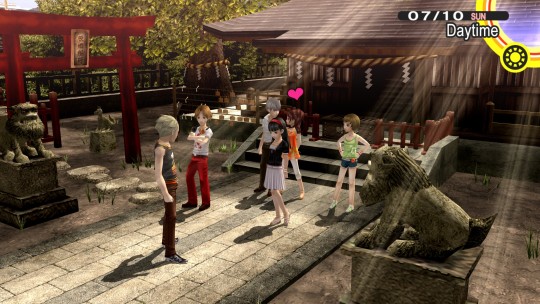
oh. oh its like that huh, lmao. she really did just move in and grab Reverie's arm.
I can't believe I forgot that Teddie becomes a real human boy. I think we're reaching the point i fell off this game back in 2009 because I don't remember much from this point on.
If anyone knows: about how far into the game are we? 40%? 50%?
.... oh god i haven't even reached summer vacation yet, have i.

25 notes
·
View notes
Text
Playlist Meme
@buckybuns tagged me!!!
Rules: You can usually tell a lot about a person by the type of music they listen to. Put your playlist on shuffle and list the first 10 songs, and then tag 10 people.
Okay, so I don't use Spotify and listen to music on YouTube, so I basically just went into one of the algorithm-generated mixes and grabbed ten songs from there. A little cheaty but I don't use actual playlists lmao I live in chaos
Trombone Champ - Trombone Skyze
AURORA - Cure For Me
Marcin Przybyłowicz - Geralt of Rivia
NSP - Everybody Wants to Rule the World
Purity Ring - Sea Castle
Barns Courtney - Supernatural
Hozier and Bear McCreary - Blood Upon the Snow
RATATAT - Falcon Jab
Fleetwood Mac - The Chain
DEAN FUJIOKA - History Maker
Tagging: @lastforest @starstrung @leighway @earwen-neruda @rufusbear @nejineeee @bitterleafs @solomonara @stevieraebarnes @epistemologys @justtoarguewithyou if you wish to participate!!
21 notes
·
View notes
Text
A look into Pascal’s Wager
Groundwork.
When it comes to Pascal’s Wager we are reminded that ‘the uncertainties and risks inherent in the human predicament force individuals to make up their minds about God’s existence.’ Also, we must be cognizant, before tackling Pascal’s proposition, of the context, intention, and apologetic use of the Wager itself:
First, the Wager was never intended to function as a rational proof for God’s existence, nor a substitute for Christian evidences.
Second, the Wager targets a specific audience, namely those who have suspended judgment on ultimate issues.
Third, the Wager emerges in a specific historical and epistemological context. Seventeenth-century France was “a society impregnated by deistic humanism and rationalist skepticism, and free thought.”
Fourth, the Wager seems to be intended primarily as a device to help awaken people who are indifferent to ultimate issues (God, death, meaning of life, morality, and immortality).
The Wager.
With the groundwork prepped let’s honestly dig into the Wager,
…‘Either God is or he is not.’ But to which view shall we be inclined? Reason cannot decide this question. Infinite chaos separates us. At the far end of this infinite distance a coin is being spun which will come down heads or tails. How will you wager? Reason cannot make you chose either. Reason cannot prove either wrong.
…you must wager!
There is no choice, you are already committed. Which will you choose then? Let us see: since a choice must be made, let us see which offers you the least interest.
What’s at stake?
In answering this question let’s consider the cost-benefit analysis of the respective answers.
I. The Cost-Benefit Analysis for the Christian is:
If a person believes in God and he actually exists, then according to Pascal the believer stands to gain everything. The payoff, so to speak, for a correct wager would involve infinite gain (eternal life with God in heaven). On the other hand, if a person chooses faith and God does not actually exist, then the believer losses nothing. In terms of cost-benefit analysis, the person who wages on God has everything to gain and nothing to lose
II. The Cost-Benefit Analysis for the non-Christian is:
If an individual does not believe in God and God does not exist, then the unbeliever gains nothing. On the other hand, if a person does not believe in God but God does actually exist, then the unbeliever stands to lose everything. The loss of wagering incorrectly would involve an infinite loss (hell's eternal exclusion from the life of God). In terms of a cost-benefit analysis, the person who wages against God has nothing to gain and everything to lose.
Clearly, these cost-benefit analyses make it plain to see that adopting Christianity (Christ Jesus as Lord) over atheism, eastern mysticism (Hinduism, Buddhism, Baháʼí etc.), other monotheistic religions (Islam, Judaism), the Cults (Christian Science, Christadelphians, Mormonism, Jehovah's Witnesses, etc.), Polytheism, and New Ageism, etc., is a judiciously rational decision.
What tools are available to help you place your bet?
In Luke 10:27 we read, “…You shall love the Lord your God with all your heart and with all your soul and with all your strength and with all your mind…”
Pascal believed that the heart has an intuitive and immediate knowledge of first principles, including God. Rather than being the center of mere emotion, the heart instead conveys a sense of intuition (suggesting immediacy, spontaneity, and directness). Copleston defines Pascal’s understanding of the heart as “a kind of intellectual instinct, rooted in the inmost nature of the soul.”
It appears that for Pascal, the mind and the heart both play an important role in a person’s coming to faith. The heart provides the basic intuition in the process of forming basic beliefs, whereas the mind provides the complementary discursive meaning.
The Elegance [richness] of the Wager.
The beauty behind Pascal’s Wager is that he attempts to wake people up to the realities of the deity, birth, life, death, burial, resurrection, and Lordship of Christ Jesus. This is important for Pascal rightly states,
Knowing God without knowing our own wretchedness makes for pride. Knowing our own wretchedness without knowing God makes for despair. Knowing Jesus Christ strikes the balance because he shows us both God and our own wretchedness.
Not only do we know God through Jesus Christ, but we only know ourselves through Jesus Christ; we only know life and death through Jesus Christ. Apart from Jesus Christ we cannot know the meaning of our life or our death, of God or of ourselves.
~ Adapted from, Samples, Kenneth Richard. ‘Without a Doubt: Answering the 20 Toughest Faith Questions.
3 notes
·
View notes
Text




”Conspiracy theory, in my humble opinion os a kind of epistemological cartoon about reality. I mean, isn't it so simple to believe that things are run by the Greys, and that all we have to do is trade sufficient fetal tissue to them and then we can solve our technological problems, or isn't it comforting to believe that the Jews are behind everything, or the Communist Party, or the Catholic Church, or the Masons.
Well, these are epistemological cartoons, you know, it is kindergarten in the art of amateur historiography. I believe that the truth of the matter is far more terrifying, that the real truth that dare not speak itself, is that no one is in control, absolutely no one. Nobody is in control. This stuff is ruled by the equations of dynamics and chaos.
Now, there may be entities seeking control — the World Bank, the Communist Party, the rich, the somebody-or-others — but to seek control is to take enormous aggravation upon yourself because this process which is underway will take the control-freak by the short and curly and throw them against the wall. It's like trying to control a dream, you see. The global destiny of the species is somehow unfolding with the logic of a dream."
- Terence Mckenna
#terence mckenna#inspector gadget#dr. claw#jurassic park#philosophy#chaos#quotes#dank ass memes#dank memage#dank memes
12 notes
·
View notes
Text
youtube
I recently discovered Rick Roderick's lectures on YouTube. Above is the first in his Self Under Siege course, encompassing Heidegger, Sartre, Marcuse, Habermas, Foucault, Derrida, and Baudrillard. Being of a certain age, I especially enjoy his frequent recourse for examples to '90s popular and political culture.
As with Michael Sugrue and Darren Staloff, whom we've already seen on here, Roderick's lectures were produced in the 1990s for The Teaching Company. Roderick effectively completes a trinity, his plain-spoken and poppy radicalism a counterweight to Sugrue's eloquent conservative denunciations of "gnostic ressentiment" and to Staloff's nervous centrist defense of modern liberal civilization.
Superficially, and with the cruelty always involved in typing, he fits a type the Twitter reactionaries have lately named and shamed: the "shitlib yokel" or "hicklib," as his fans' application to him of the label "the Bill Hicks of philosophy" might imply. Conversely, Sugrue might fit the hicklib's antitype: the metrocon.
The hicklib, surrounded in the provinces by complacent conservatives, histrionically over-identifies with left critique, while the metrocon, beset by the "herd of independent minds" known as metropolitan left-liberals, deliberately adopts shocking reactionary rhetoric, each trying to feel free in an ideologically suffocating atmosphere. If the metrocon is too cavalier about what earlier eras of hierarchy and hegemony were actually like, the hicklib is equivalently casual about what toppling every hierarchy might actually cause or whose interests such rhetoric serves.
(I myself have elements of both sensibilities because I've had elements of both experiences—I notice that Roderick's mother, like my own, was a beautician—but am perhaps more the metrocon by temperament. The hicklib tends to have a Protestant background, the metrocon a Catholic or Jewish one.)
I think here of Roderick's calm acceptance, at the end of his excellent Derrida lecture, that philosophy is "white mythology," and that therefore a thousand other (indeed, Other) mythologies deserve to bloom; this may seem naive 30 years later, both about the epistemological chaos such a development occasioned and about anyone's willingness—white, black, other—not to believe their own myths.
On the other hand, now that it's happened—I don't myself believe in any "white mythology," for example—then we have to get through it with the kind of impassioned good humor Roderick models. That's what a good teacher is: not a conveyor of information, which is readily available in books, but a model of sensibility.
Roderick's life ended badly. Duke denied him tenure, and about a decade later, he died in 2002 at age 52. I recommend his son Max's extraordinary elegy, especially for a glimpse of the early violence and horror with which he purchased his adult convictions, a price too high to be dismissed with the culture-war tropes of the essentially nihilistic online era he both did and not quite foresee in The Self Under Siege.
My generation doesn’t live beneath Rick’s empty, Godless sky. We live beneath a sky so full of Gods that they have become mundane and meaningless. Our heritage collapses by the generation; my grandfather had America, my father had Texas, I have my father – what could my children possibly receive?
3 notes
·
View notes
Text
Hello this is a shower thought post about moral frameworks in the Dishonored games!
The first Dishonored is a takedown of Randian political principles: that there are exceptional people who know what's best for society at large (Burrows), and that it's acceptable to 'break a few eggs to make an omelette', so to speak. To sacrifice Dunwall's poor in a manufactured plague in order to rid the city of poverty.
Knife of Dunwall and Brigmore Witches are both a takedown of a kind of spiritual determinism - the belief so many of us hold that it doesn't really matter what we choose to do because in the end there are forces greater than us fucking things up (Randians, for example...) and so our actions are nothing but noise. Daud learns the hard way, following his assassination of Jessamine, that it's not true, and he spends the DLCs not only trying to 'atone', but being faced with situation after situation where choice is a very personal, poignant thing.
Dishonored 2 is a takedown of personal narcissism. Delilah as the main antagonist is stuck perpetually lashing out at a world she feels has wronged her while at the same time desperately wanting to be loved by that world. In her delusional quest for universal adoration she mangles what love she has, or could have. Playing as Emily highlights how remaining childish, a bit self-centered, and not being attentive enough to her subjects has made Emily kind of a shit Empress.
Death of the Outsider is in large part a continuation of Daud's struggle with determinism, but it's also a takedown of epistemological obsession, of the belief that there is an absolute truth one can discover about the nature and meaning of life and the universe, and that the pursuit of this knowledge excuses any horrible thing you might do to get there. The antagonist in this game is not the Outsider at all, but the obsessive cultists who've dedicated their lives (and sacrificed the lives of others) to the pursuit of this knowledge.
So, political, spiritual, personal, epistemological. All different angles to the question of what is right, what is good, and in each of the games the answer is always the same: kindness. Mercy. The morality system in the game measures 'chaos', and the less kind you are, the more chaotic the world becomes. It doesn't matter how politically effective someone is, how spiritually consistent, how personally fulfilled, or how epistemologically correct - the only way to live well in the world (Dishonored's world and ours) is to be kind. It's to choose that kindness instead of a knife, over and over.
So many people play these games and they're disappointed at the impact their choices have. After all, at the end of Dishonored, Dunwall is still a deeply non-egalitarian early industrial capitalist nightmare of a city. Daud doesn't find the redemption he seeks until his very last breath in the Void. Emily doesn't dissolve the monarchy in favour of some utopian socialist fantasy. If you give the Outsider his name back, nothing cool happens.
I think that's why people give up on kindness as an organizing principle of morality in real life too. It's a painfully slow-acting medicine for the world's ills and so often it's much more satisfying to get your way, to give in to nihilism, to be cruel, to be right.
Whew, this post has gone on for way longer than I intended... I just wanted to say that the central thesis of the Dishonored games is that most of the time kindness isn't very effective or easy or satisfying or interesting, but it's the only path to something better, for ourselves and for the world we live in. That's all.
10 notes
·
View notes
Text

claudette morel’s mind always seems to see a pattern in the chaos. forces her to process the world like data waiting to be connected, constructed, into information. epistemology. but the brain is more than that. so much more horrifying than that. it is a forest. neurons and synapses connecting like a thousand roots in the dirt. reacting and acclimatizing to its ecosystem. reaching blindly into the void. the human experience is only a convolution of chemicals and cells and retinas, processing a fraction of the light waves known to exist in the universe. a flesh-illusion.
and claudette acclimatizes to the entity. her genius becomes a tool for survival. a defense mechanism, like thorns on a rose. she cracks the bones of hexes, imbued with the entity's power, and uses the sharp pieces to cut into her skin. words. warnings. revelations. death is not an escape, across her forearms, her thighs. destroy the hexes. write your plans with bones and skin. find vigo's journals. vigo. vigo. vigo. over and over.
claudette morel can escape the trial grounds, the monsters, the killers, but not her own body. she dies, she lives, she wakes up in the fog, by a campfire. year after year. century after century. the entity forces its victims to forget, or remember, at its own leisure. to repeat the horror that takes place in its trial grounds, fresh, reborn. but the warnings linger, for a moment. written with hex bones and, when the season is right, pustula thorns. just a moment. just long enough that claudette sees. begins to question everything.
and she does not escape. not from the entity.
but she finds the exit.
there are certain people who have the potential to escape the fog, and one of them would unquestionably be claudette morel. her encyclopedic knowledge of physics, chemistry, and biology compels her to understand. to find solutions. when fear forces others to react, claudette only wants control.
it is not difficult to keep her mind open. to experiment. she develops a greater understanding of the entity, as an organism. her research focuses on the fog. learns that it is alive, and it holds memories. thousands and thousands of memories, from different worlds. planets.
alchemy was once considered to be a science. science was once considered to be witchcraft, blasphemy. and what is an old god, to a nonbeliever? claudette uses what she has at her disposal. hawkins national laboratory. lerry’s memorial hospital. racoon city police department's forensics lab. the temple of purgation. anything. anywhere. she becomes a scavenger, uninterested in the entity’s rules or objectives.
her research is primarily conducted alone, as a contingency. the crows are always watching, spying. her behavior would be considered strange and contradictory to amnesic victims. but claudette is not above pleading for help, from survivors. from killers. deals. trades. the possibly of freedom. real freedom. not just an opened gate, or a hatch on the floor.
5 notes
·
View notes
Text
The problem seems to be metaphysical rather than political, epistemological rather than semantic. Or to put it simply: the reason we can’t systematize Truth into our lives is not just because our systems are so lousy, but because Truth can’t be systematized. This is not to say that Truth cannot be approached in a systematic, or at least a determined, way; rather, it’s an aspect of a phenomenon which Richard Rose has called “between-ness”, and which Charles Fort labeled “Intermediateness”.
Fort’s point of departure was an emotion-charged critique of the implicit claim to omnipotence by turn-of-the-century Science. In The Book of the Damned he gleefully laid out excerpts from the mountains of data he had collected, of events and phenomena unexplainable by scientific dogma; and in between accounts of red and black rains and strange lights in the sky, he explicated a quite remarkable philosophy.
It holds that nothing can be truly said to exist, outside of the Absolute. Any creature’s claim to absolute entity is nullified by a similar claim made by other creatures. All apparent being is simply the dynamic flux of the relative, eternally striving to become non-relative, unconditioned; and the reason we perceive things as having being in themselves is simply because we, too, are caught up in the vast shadow-show of Intermediateness between chaos and equilibrium.
-- https://www.searchwithin.org/journal/tat_journal-01.html
3 notes
·
View notes
Text
"Institutions are profoundly important to a high-tech society. No one is capable of assessing all the life-or-death choices we make every day, from whether to trust the firmware in your car's anti-lock brakes, the alloys used in the structural members of your home, or the food-safety standards for the meal you're about to eat. We must rely on well-regulated experts to make these calls for us, and when the institutions fail us, we are thrown into a state of epistemological chaos. We must make decisions about whether to trust these technological systems, but we can't make informed choices because the one thing we're sure of is that our institutions aren't trustworthy."
0 notes
Video
youtube
Jesus Archaeology # 8 Does the Gospel of John Have any Worthwhile Histor...
COMMENTARY”
Jimmy, the thing is, the literature of the Gospel of John is so much more interesting that your career as a Marxist tour guide. As near as I can tell is that your academic career as a popular counter-culture lecturer is based on the charisma of that iconic Che Guevara poster Back in the day, say, 1968, the guys getting laid on campus was the long-haired anti-war non-violent campus radicals. The pro-war Young Americans for Freedom corporate careerists with David and Ricky Nelson haircuts still can't get laid if they wrapped their dicks in $100 dollar bills in a Nevada Cat House.
The Gospel of John is a memoir of John Mark's relationship with Jesus from the time he was 12 years old and going through Bar Mitzvah the Passover Jesus took command of John the Baptists Repentance Crusade. John Mark would grow up to be Saint Mark of Alexandria and the founder of the first Christian publishing house in history which produced 90% of the codex we posses produced before the 4th Century. P-52 establishes that copies of the Gospel of John were in circulation as early as 90 CE to 120 CE. Before that, the conventional wisdom was that the Gospel of John wasn't even written much before the 6th Century based on a misapplication of Hegel, which most Western intellectuals misunderstood in the manner of Marx.
Marx assumed that Hegel renewed the Cartesian trajectory from Plato and Hegel's dialectic made possible by Newton, Hume and Kant, was a form of dialectical Idealism.. Marx proposed to "stand Hegel on his head" and posited dialectical materialism as history's original Contrarian.
The thing is, Hegel's paradigm is based on Paradox and employs dialectical synthesis as the dynamical modeling Chaos theory requires. Hegel's epistemology, the Phenomenology of Spirit, is Gestalt Theory and his method of inquiry, Thesis-Antithesis=Synthesis is a format for deconstruction Chaos and devolving it to Paradox. As Napoleon observed in anticipation of Hegel, The Moral is to the Material as 4 is to 1.
And that's what the Overture to the Gospel of John, This is state-of=the=Art mid-Platonic school of Philo of Alexandria. Robyn Walsh has a MythVision disinformation that the Gospel of Mark plagiarized Homer and other nonsense. Jews in Alexandria were absolutely delighted with Greko-Roman culture. In particular, Greek, which had an active vocabulary of between 250 - 350,000 words to 60,000 words in Hebrew. That's why the Septuagint was commissioned: It did for Jewish thought what Handel's Messiah does for Christmas..
John Mark's relationship, as portrayed in his Gospe was like a bat boy to Lou Gehrig, I mean, this is a very erotically charged portrait of hero worship from a very intelligent Jewish mind. The timeline of the Gospel of Mark is absolutely faithful to Roman Standard Time. The Gospel of John is measured by the 4 cardinal points of the Solar year, beginning with the Vernal Equinox that sets the meter running for Passover and Easter. John Mark is a Virgo and his birthday comes just before the Atumnal Equinox and the Fesitval of the Tabernacles. I put his birthday at September 8, which is the day Jerusalem fell in 60 CE, Both the Gospel of Mark and the Gospel of John begin after the Vernal Equinox when Jesus pops up above the Roman military horizon. Mark 15 begins after the Vernal Equinox in 33 Ce, according to the astronomy. The narratives of the Gospel of John and the Gospel of Mark converge at chapter 11. John Mark is 15 and was the youth that warped naked in Mark 14,.
You are using a corrupted translation of John 18:3 that reflects the Jesus Seminar Marxist verion of Jesus. The Isiah Scroll of the Dead Sea Scrolls utterly rebuts and refutes Bart Ehrman's thesis that there is any significant uncertainty regarding the King James narrative, which does not include Roman soldiers at the arrest of Jesus, because it didn't happen, Pilate was aware of the politics of Jewish Judea and the Galilee, but he was largely laissez-faire, His primary mission was to secure the trade routes and land bridge into Egypt, Pax Romana was a Freee Enterprise economic ecology in contrast to the Free Market piracy economics prior to and fater Roman control of the Med. Post Modern scholarship tends to prefer to depict Pilate as a brute but it is useful to remember that JFK sent the 82 Airborne to Los Angeles in 1963 to back up the National Guard. Pilate was a very competent manger of the reion in a generation of competence installed by Sejanus, who was something of a personnel management and administration genius.
The thing is, John Mark was like Josephus, the child of upper crust Pharisees who inherited a passion ofr that kind of success early. Jesus wasn't a revolutionary: He agreed with Josephus that Ro Pax Romana was a better idea that a Jewish citadel. John Mark of Alexandria who wrote the Gospel of John was expelled from Judaism by the 19th blessing of the Amidah. He was expelled by the Shammai school of Judaism, which is the rough draft of the theology of Pauline Judaism.
And your Marxist version of the Gospels misses all that ,
0 notes
Quote
This chapter discusses a number of metaphysical and epistemological issues that are raised by the investigation and behavior of complex systems. Before treating some of these issues, a characterization of nonlinear dynamics and complexity is given. Along with this background, some folklore about chaos and complexity are discussed. The loss of linear superposition in nonlinear systems is one of the crucial features of complex systems. This feature is related to the fact that complex behavior is not limited to large multi-component systems, but can arise in fairly simple systems as well. The impact of nonlinearity on predictability and determinism are discussed including, briefly, the potential impact of quantum mechanics. Some have argued that chaos and complexity lead to radical revisions in conception of determinism, namely that determinism is a layered concept, but such arguments turn on misunderstandings of determinism and predictability and their subtle relations in the context of nonlinear dynamics. When the folklore is cleared away, the relationship among determinism, predictability and nonlinearity can be seen more clearly, but still contains some subtle features. Moreover, the lack of linear superposition in complex systems also has implications for confirmation, causation, reduction and emergence, and natural laws in nonlinear dynamics all of which raise important questions for the application of complex nonlinear models to actual-world problems.
Metaphysical and Epistemological Issues in Complex Systems - ScienceDirect
0 notes
Text
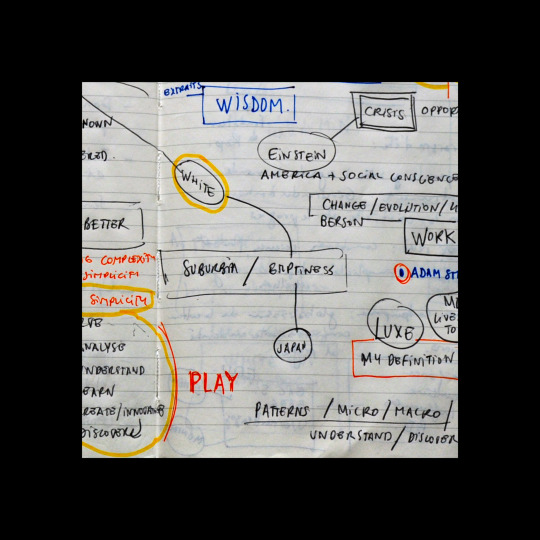
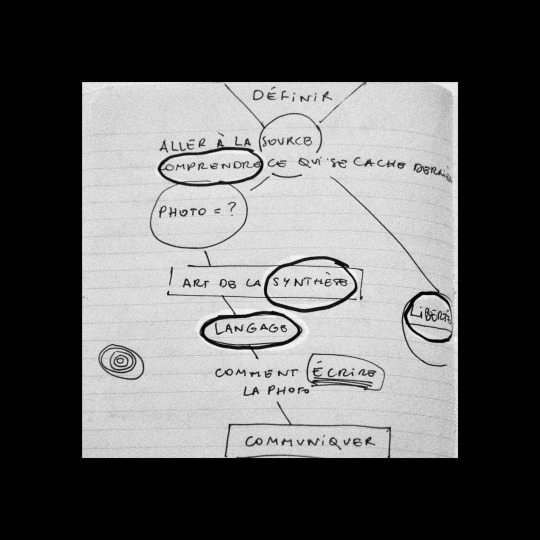
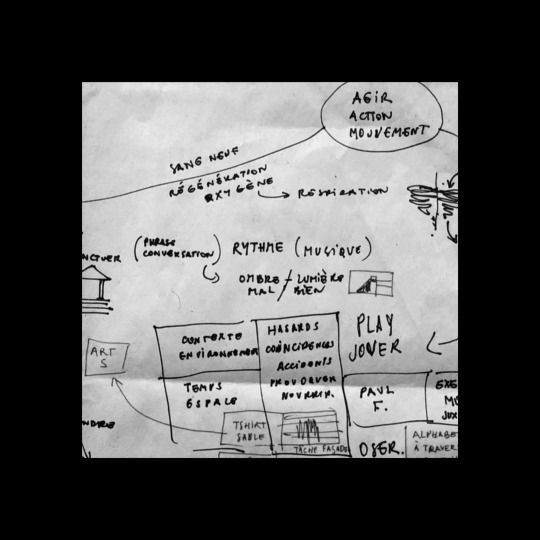
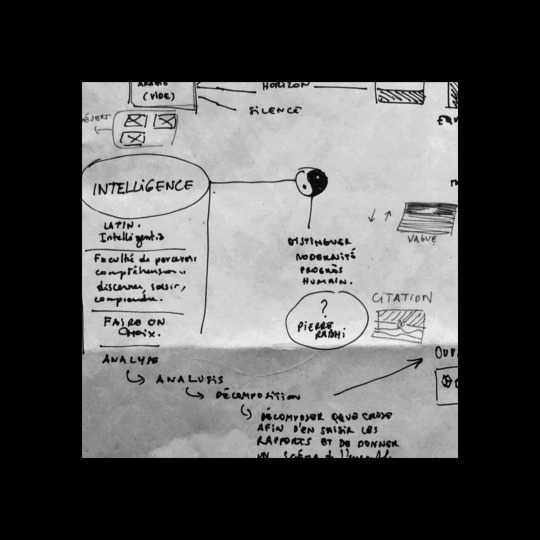
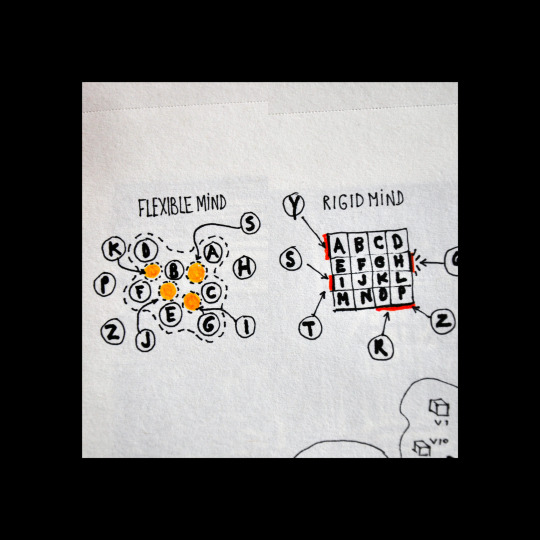
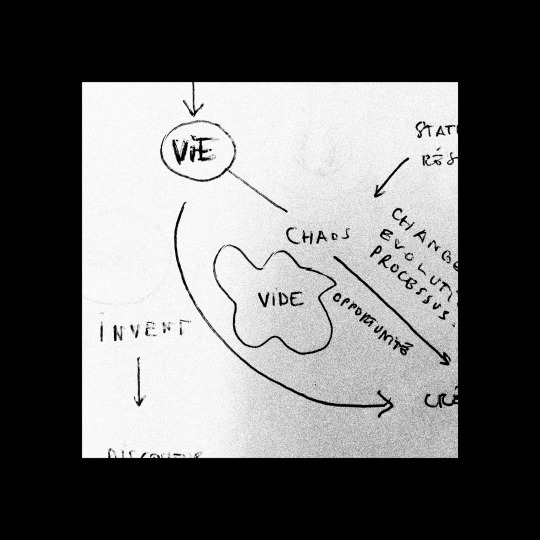
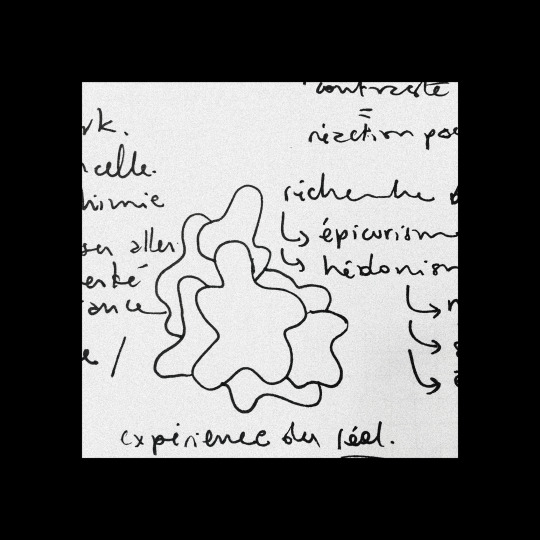
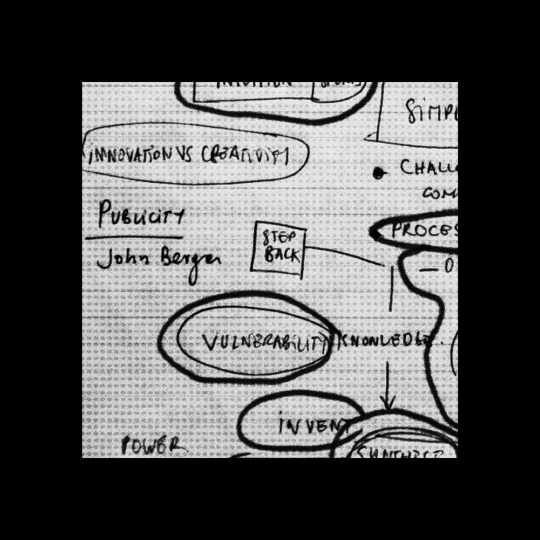
On theoretical anarchism.
How order sometimes keeps us from discoveries, while chaos can lead to groundbreaking ideas.
Paul Feyerabend, for example, described science as essentially anarchistic. Epistemological anarchism is an epistemological theory advocated by P.F. that states that there are no useful and exception-free methodological rules governing the progress of science or the growth of knowledge.
Edward Lorenz, the father of chaos theory, speaks of the two most important ingredients of a brilliant mistake:
1 — Something goes wrong that's far beyond what was previously expected.
2 — New insights arise whose benefits far exceed the costs of the mistake.
Our actions should aim to increase the likelihood of both occurring at the same time.
All mistakes are not created equal. Some have a high cost and offer little learning value, while others cost little and yield deep, valuable insights.
Paul Karl Feyerabend was an Austrian-born philosopher of science best known for his work as a professor of philosophy at the University of California, Berkeley, where he worked for three decades (1958–1989). His major works include Against Method (1975), Science in a Free Society (1978) and Farewell to Reason (1987). Feyerabend became famous for his purportedly anarchistic view of science and his rejection of the existence of universal methodological rules. He was an influential figure in the sociology of scientific knowledge. Asteroid (22356) Feyerabend is named in his honour.
Edward Norton Lorenz was an American mathematician and meteorologist who established the theoretical basis of weather and climate predictability, as well as the basis for computer-aided atmospheric physics and meteorology. His discovery of deterministic chaos "profoundly influenced a wide range of basic sciences and brought about one of the most dramatic changes in mankind's view of nature since Sir Isaac Newton," according to the committee that awarded him the 1991 Kyoto Prize for basic sciences in the field of earth and planetary sciences.
[Images: excerpts from old notebooks from 5-6 years ago].
0 notes